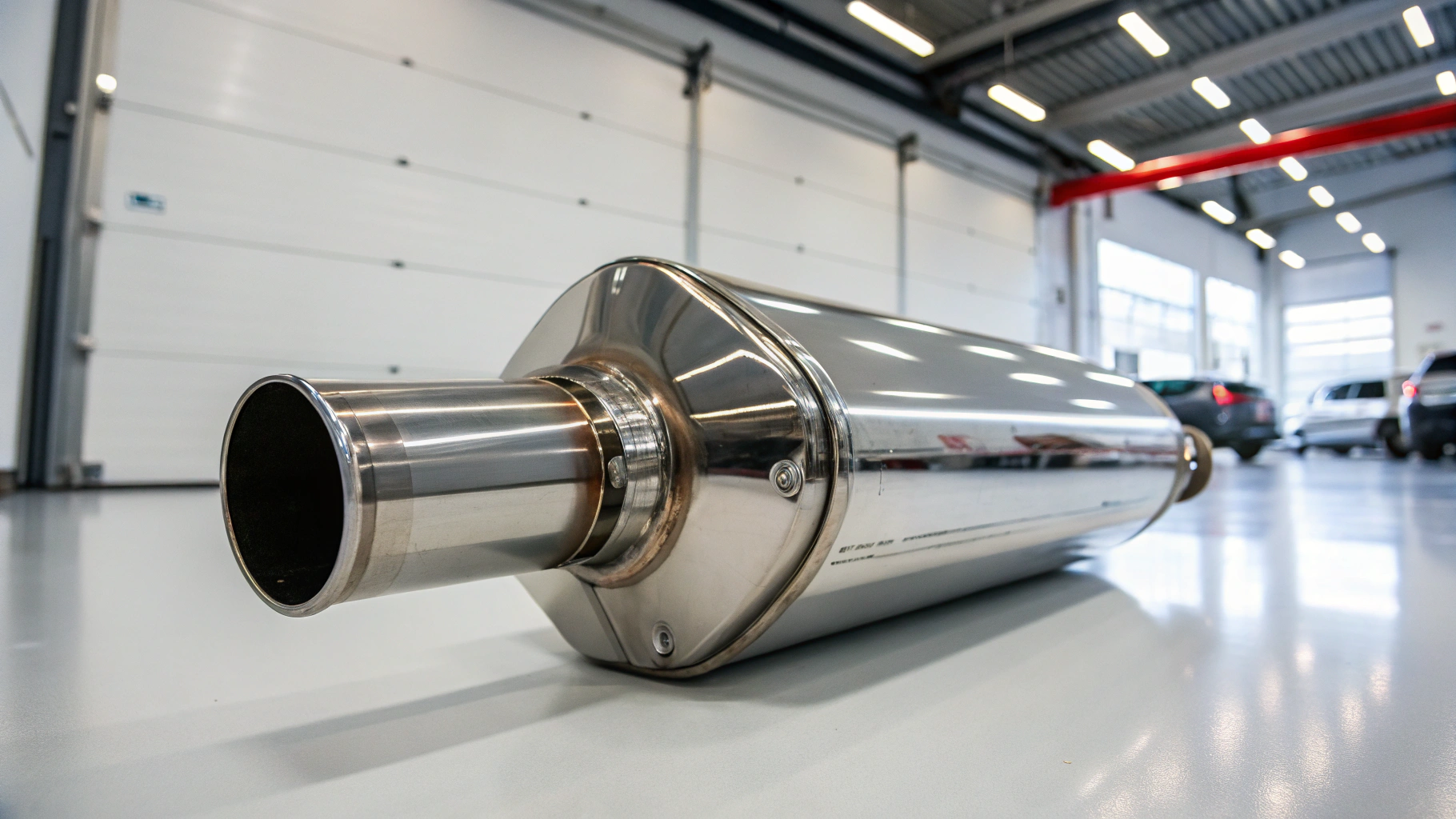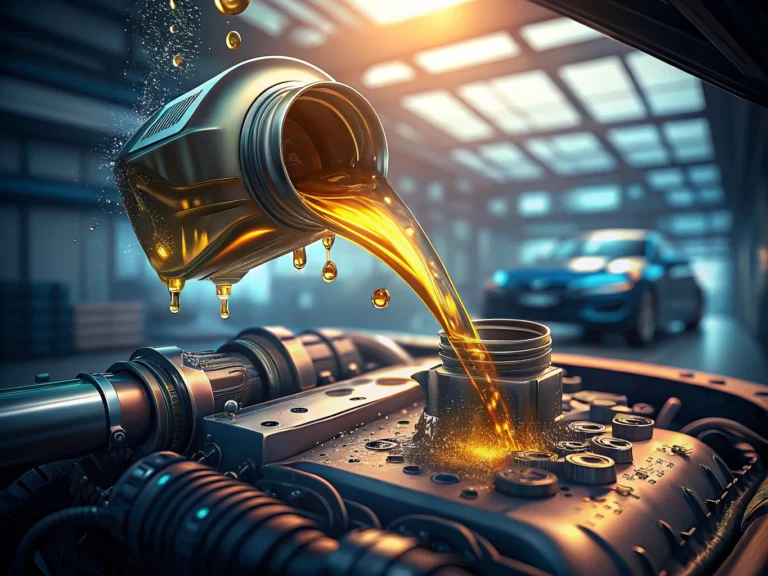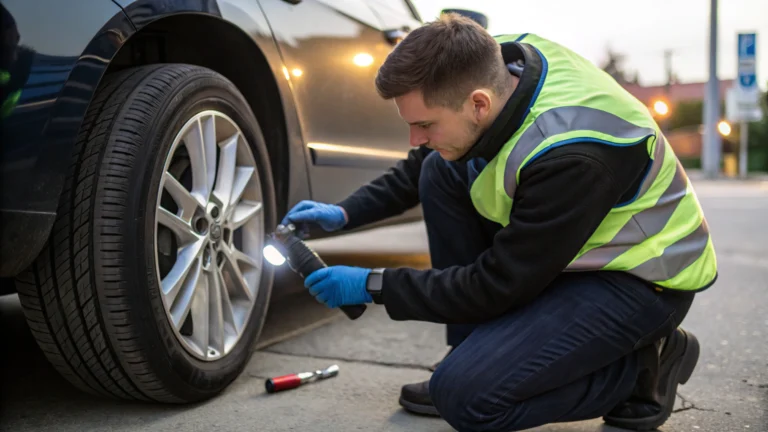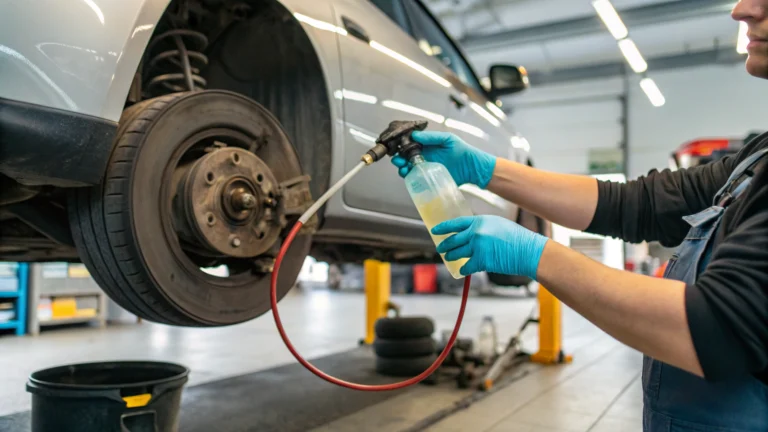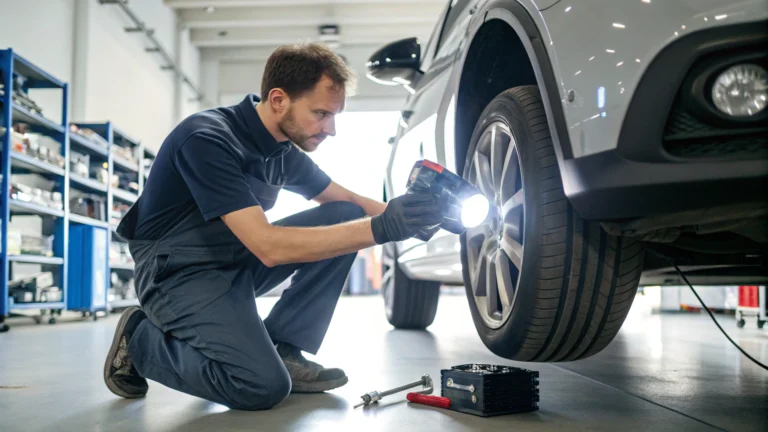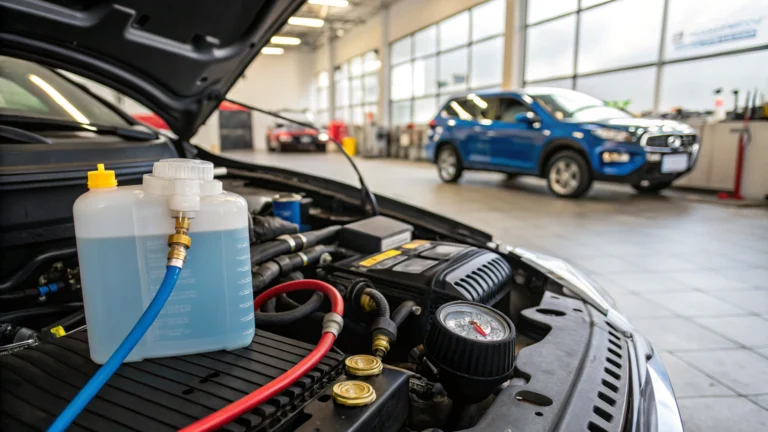Complete Guide to Catalytic Converter Replacement Cost and Warning Signs
Table of Contents
That sinking feeling when your car starts making strange noises or your check engine light comes on could mean your catalytic converter is failing. This critical emissions component doesn’t just help protect the environment—it’s required by law in most states, and when it goes bad, you’re looking at a serious repair bill.
Understanding the catalytic converter replacement cost and recognizing the warning signs early can save you hundreds or even thousands of dollars in additional repairs. We’ll walk you through the six key symptoms that indicate converter failure, break down replacement costs by vehicle type, and explain why acting quickly protects both your wallet and your car’s engine.
6 Critical Signs of a Bad Catalytic Converter
Your car will tell you when the catalytic converter is failing—you just need to know what to listen and look for. These six warning signs are your early alert system for potential converter problems.
Strange Rattling Sounds From Below
If you hear a metallic rattling noise coming from underneath your vehicle, especially when starting up or accelerating, your converter’s internal honeycomb structure may be breaking apart. This ceramic or metal substrate is designed to provide surface area for the chemical reactions that clean your exhaust, but when it deteriorates, the loose pieces create that telltale rattling sound. Don’t ignore this noise—it means the converter has already sustained internal damage.
Unusual Exhaust Smoke Colors
Your exhaust pipe is like a window into your engine’s health. While some steam on cold mornings is normal, blue-tinted smoke or unusually thick emissions can signal converter problems. When the catalytic converter can’t properly process exhaust gases due to contamination or internal damage, you’ll see the evidence in abnormal exhaust colors and consistency.
Sluggish Engine Performance
A failing converter affects your engine’s ability to breathe properly. When the converter becomes clogged, it creates backpressure that makes your engine work harder for less power. You might notice your car feels sluggish during acceleration, struggles to maintain highway speeds, or seems to lack its usual pep. This happens because the blocked converter restricts the natural flow of exhaust gases.
Declining Fuel Economy
If you’re filling up more frequently than usual, a faulty catalytic converter could be the culprit. When your engine has to work harder to push exhaust through a compromised converter, it burns more fuel to maintain the same performance. Keep track of your gas mileage—a sudden drop of 10-15% or more could indicate converter issues alongside other symptoms.
Check Engine Light Activation
Modern vehicles use oxygen sensors to monitor catalytic converter efficiency in real-time. When these sensors detect that the converter isn’t performing within normal parameters, they trigger the check engine light. While this warning can indicate various issues, it’s one of the most reliable early indicators of converter problems, especially when combined with other symptoms on this list.
Failed Emissions Testing
In states requiring emissions testing, a failing catalytic converter will almost certainly cause your vehicle to fail inspection. Since the converter’s primary job is reducing harmful pollutants in your exhaust, any malfunction results in higher emission levels that exceed legal limits. This is often the final confirmation that replacement is necessary.
Catalytic Converter Replacement Cost Breakdown by Vehicle
The catalytic converter replacement cost varies dramatically depending on your vehicle’s make, model, and year. Understanding these cost factors helps you budget appropriately and avoid sticker shock at the repair shop.
Economy and Mid-Size Vehicles
For most mainstream vehicles like the Ford F-150, catalytic converter replacement cost typically ranges from $900 to $1,200 total. The parts usually cost between $400 and $800, with labor adding another $200 to $400. These vehicles often use more standardized converter designs, which helps keep costs reasonable compared to luxury or specialty vehicles.
Luxury and Performance Cars
Premium vehicles like BMW, Mercedes-Benz, and Audi face significantly higher catalytic converter replacement costs, often ranging from $2,000 to $3,500 or more. The BMW 740i, for example, can cost over $2,300 for converter replacement due to specialized parts and complex installation requirements. These vehicles often require OEM parts and specialized labor expertise.
Hybrid Vehicles
Hybrid cars present unique challenges for catalytic converter replacement cost. Models like the Honda Civic Hybrid can cost $4,000 or more for converter replacement due to their sophisticated dual-powertrain systems and specialized emission control requirements. The converters themselves are more complex and expensive, and the installation often requires hybrid-certified technicians.
Trucks and SUVs
Larger vehicles typically fall somewhere in the middle for catalytic converter replacement cost, usually ranging from $1,000 to $2,500. However, vehicles with multiple converters or complex exhaust systems can push costs higher. Some trucks require replacing multiple converters simultaneously, multiplying the total expense.
Factors That Affect Your Replacement Cost
Several key variables influence your final catalytic converter replacement cost beyond just your vehicle’s make and model. Understanding these factors helps you make informed decisions about your repair options.
OEM vs. Aftermarket Parts
Original Equipment Manufacturer (OEM) converters typically cost 50-100% more than aftermarket alternatives but offer guaranteed fit and performance. Aftermarket converters can significantly reduce your catalytic converter replacement cost while still meeting legal requirements, though they may not last as long or perform as efficiently as OEM parts.
Regional Labor Rates
Labor costs vary significantly by geographic location, with urban areas and regions with higher costs of living charging more for installation. The complexity of accessing your vehicle’s converter also affects labor time—some cars require removing multiple components or lifting the engine, while others offer easy access from underneath.
Emissions Standards Requirements
California and several other states require CARB-compliant catalytic converters, which cost more than standard EPA-compliant units. If you live in one of these states, your catalytic converter replacement cost will be higher due to these stricter emissions standards, but you’ll also get a more effective pollution-control device.
Multiple Converter Systems
Many modern vehicles have multiple catalytic converters—sometimes three or four—to meet strict emissions standards. If one fails, others may be close behind, and replacing all converters simultaneously can be more cost-effective than multiple separate repairs, though it increases your immediate catalytic converter replacement cost.
Additional Repairs Needed
Converter failure sometimes indicates or causes other exhaust system problems. Damaged oxygen sensors, exhaust leaks, or engine issues that caused the converter failure may need addressing simultaneously, adding to your total catalytic converter replacement cost but preventing future failures.
Why Immediate Replacement Saves Money Long-Term
While the catalytic converter replacement cost might seem steep, delaying this repair almost always leads to more expensive problems down the road. Understanding these consequences helps justify the immediate investment in your vehicle’s health.
Preventing Engine Damage
A severely clogged catalytic converter creates dangerous backpressure that can damage your engine’s valves, pistons, and other internal components. These engine repairs can cost thousands more than the catalytic converter replacement cost, making prompt action a smart financial decision. Additionally, the restricted exhaust flow can cause your engine to run hotter, potentially leading to overheating issues.
Avoiding Cascade Failures
When one component in your exhaust system fails, it often stresses other parts beyond their limits. A failing converter can damage oxygen sensors, exhaust pipes, and mufflers, turning a single repair into a comprehensive exhaust system overhaul. Addressing converter problems immediately prevents this domino effect of failures.
Legal and Registration Issues
Driving with a failed catalytic converter is illegal in most states and can result in fines, failed inspections, and registration problems. Some states won’t allow you to renew your vehicle registration without passing emissions testing, making timely converter replacement essential for maintaining legal road access.
Fuel Economy Recovery
A functioning catalytic converter helps your engine run more efficiently, improving fuel economy. While the catalytic converter replacement cost represents a significant upfront expense, the improved gas mileage can offset some of this cost over time, especially with current fuel prices.
Maintaining Vehicle Value
A well-maintained emissions system preserves your vehicle’s resale value. Potential buyers or dealers will quickly identify emissions problems during inspections, and a failed catalytic converter can significantly reduce your car’s worth. The catalytic converter replacement cost is often less than the depreciation you’d face trying to sell a car with known emissions issues.
For accurate cost estimates and professional diagnostics, we recommend consulting with RepairPal for certified shop quotes and Edmunds for comprehensive vehicle-specific pricing data.
Shop Catalytic Converter Essentials
- Find Catalytic Converters on Amazon
- Find Oxygen Sensors on Amazon
- Find Exhaust Repair Kits on Amazon
- Find Exhaust Gasket Sealants on Amazon
- Find OBD2 Scanners on Amazon
As an Amazon Associate we earn from qualifying purchases.
The catalytic converter replacement cost might seem daunting, but recognizing the warning signs early and acting promptly protects both your vehicle and your wallet. From rattling noises and poor performance to check engine lights and failed emissions tests, your car provides clear signals when the converter needs attention.
Don’t let catalytic converter problems escalate into major engine damage or leave you stranded with a car that can’t pass inspection. Have you noticed any of these warning signs in your vehicle, and what questions do you have about navigating the replacement process?
